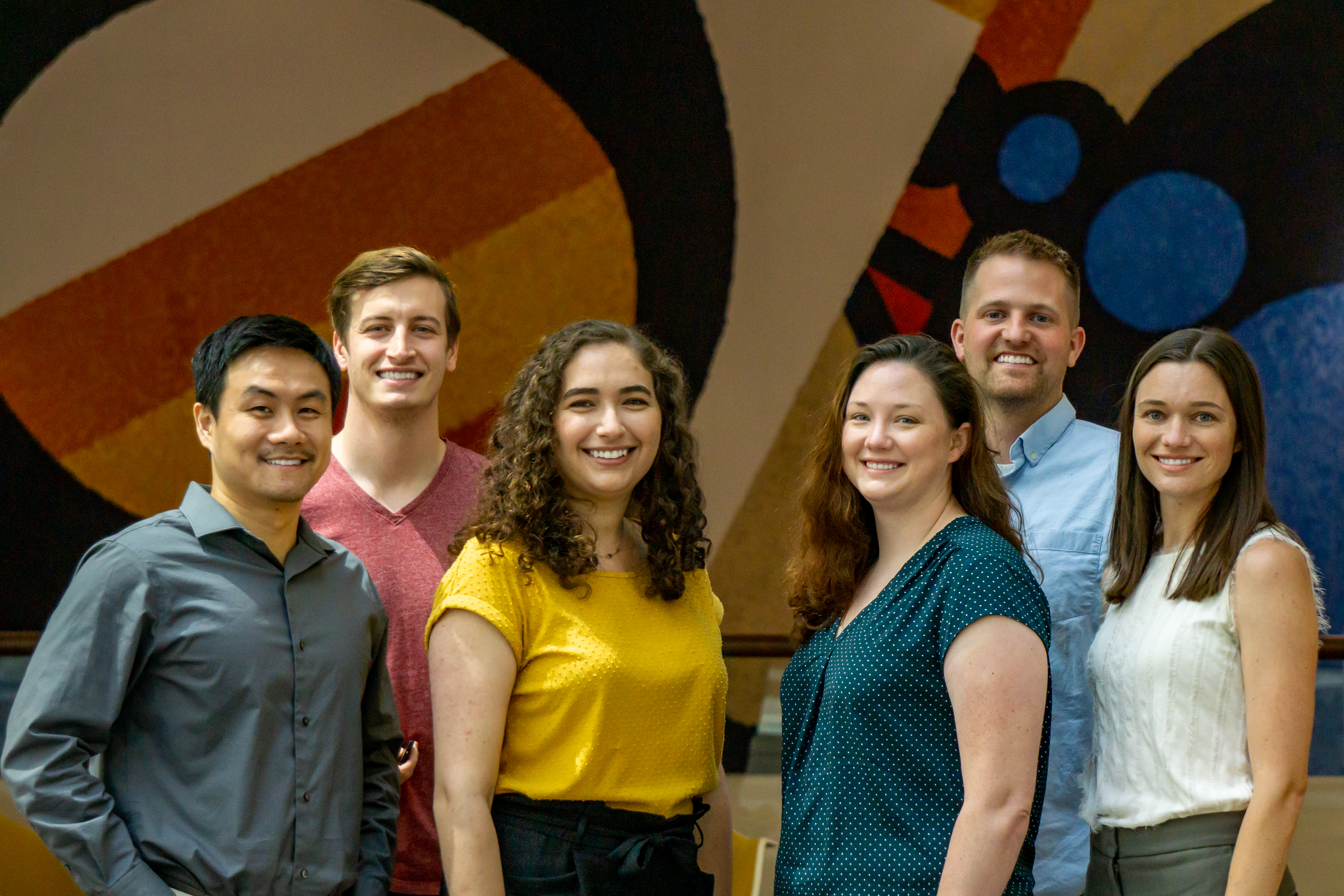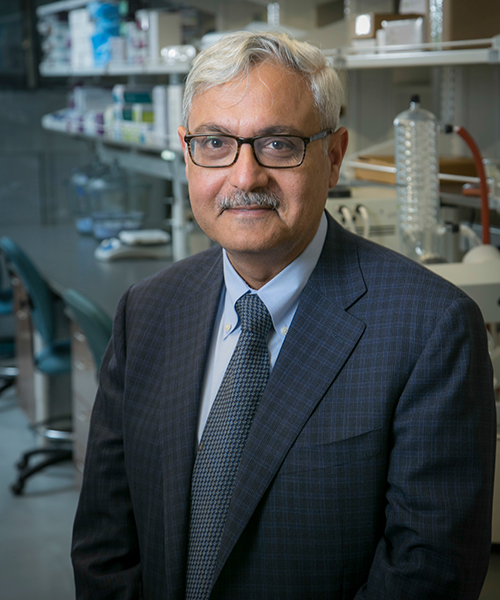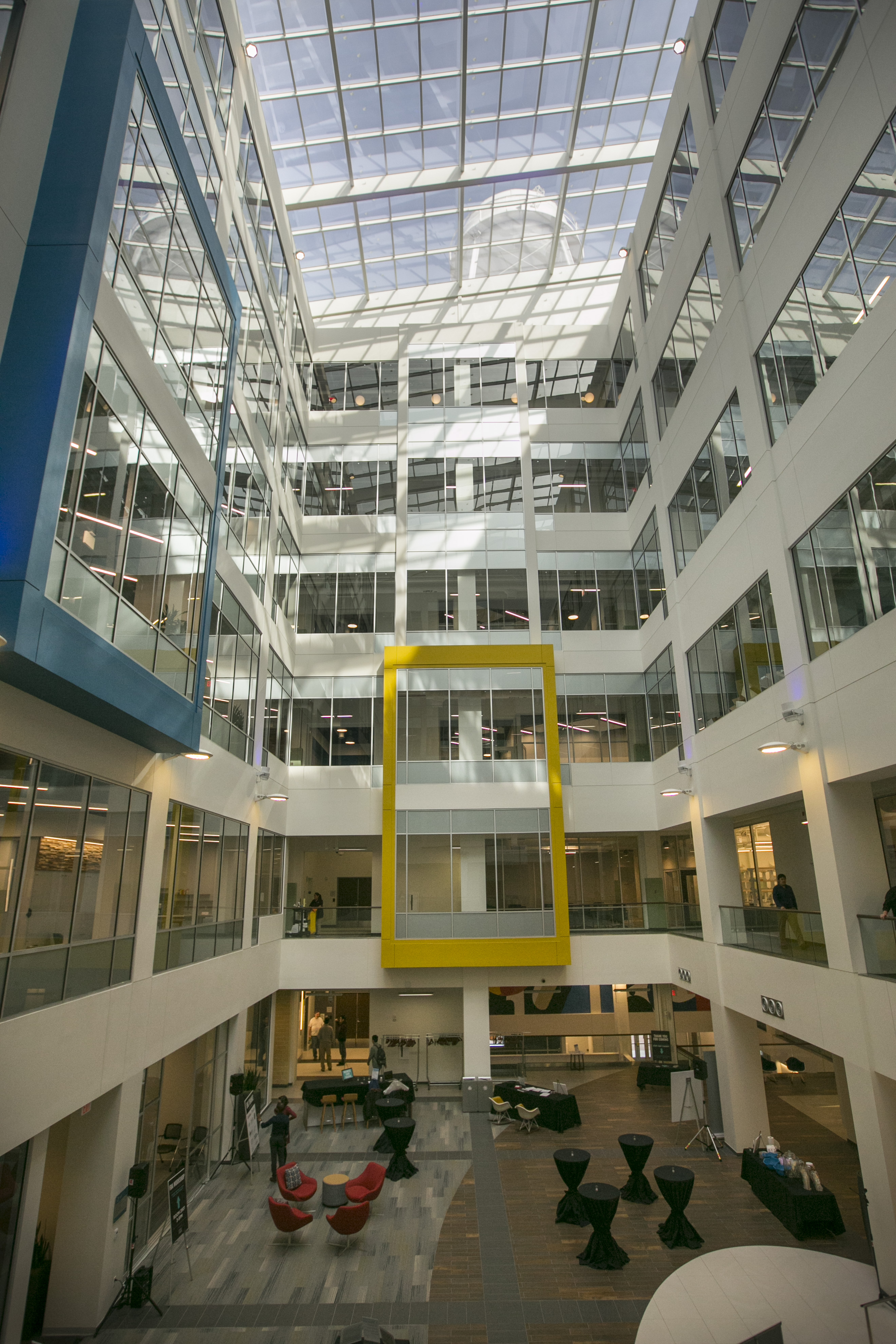Co-founder and CEO Kelli Luginbuhl talks to GUV about how the Duke spinout re-imagines the manufacturing of complex biologics.
It has been less than a decade since Jennifer Doudna, of University of California, Berkeley, and Emmanuelle Charpentier, of Umeå University, published their seminal paper on Crispr-Cas9 gene editing in the journal Science, showing that while there had been other genome editing techniques, they had discovered a much simpler approach.
The progress made over the years since that paper was published has been phenomenal. Countless cell and gene therapy developers have sprung up, including Doudna and Charpentier’s own Crispr Therapeutics, but also University of Pennsylvania-linked Passage Bio or Broad Institute-affiliated Editas Medicine. Doudna co-founded the former, but left over a complex, drawn-out legal dispute between her university and Broad Institute, which both laid claim to aspects of the technology.
Doudna also went on to co-found Caribou Biosciences and Intellia Therapeutics.
So far, so promising. But there is a looming issue: the industry is still relying on decades’ old chromatography methods that were invented for much simpler, smaller molecules, which is why we have found ourselves with a bottleneck and imbalance in supply and demand for manufacturing cell and gene therapies.
Step in Isolere Bio, a spinout of Duke University that is looking to solve this exact problem. Kelli Luginbuhl, chief executive and co-founder, said: “Isolere Bio was founded with a vision of re-imagining how we can manufacture complex biologics and next-generation medicines of today and of the future.
“There has been very little innovation in manufacturing over the last several decades. We are looking to make an impact with our technology, making the manufacturing of these lifesaving medicines more efficient and more affordable.”
The company is based on research by Ashutosh Chilkoti, the Alan L Kaganov professor of biomedical engineering and chair of the Department of Biomedical Engineering at Duke University, who “always has felt that it could make an impact in how biologics could be purified and, even more broadly, manufactured,” Luginbuhl recounted.
Joseph McMahon, president and chief executive of Bioventure Partners, is also a co-founder.

Chilkoti and McMahon met at a function many years ago and both believed in the idea, but at the time McMahon was still president and chief executive of biopharmaceutical contract services organisation KBI Biopharma.
“When McMahon eventually decided to leave KBI and found his own early-stage investment and growth advisory firm, the timing was finally right for him and Chilkoti to spin the technology out of Duke,” Luginbuhl stated.
Around the same time, Luginbuhl was finishing up her PhD – which looked at developing a controlled release drug delivery system for type 2 diabetes – and planning to move to San Francisco. “But then Chilkoti asked if I wanted to stick around Durham and start a company, and that was an opportunity I could not turn down,” she recalled.
Through her PhD research, Luginbuhl was already intimately familiar with the stimulus-responsive proteins that form the basis of Isolere’s technology. “I spent my whole PhD working with the same materials that we are developing now. I have had a lot of experience designing, developing, characterising and understanding these unique biomaterials. Purifying proteins was an everyday part of my PhD,” she noted. “I feel very grateful: how many people get to translate what they worked on during their PhD into a company that they are building to develop useful tools?”
Despite her keenness to co-found the spinout, she had never thought about launching her own company before then. But she was very interested in startups, she revealed, and had applied for positions with several in San Francisco because “they are a perfect balance between the innovation and the creativity you get from academia, but with the direct impact you see in industry.”
The decision to keep the company in Durham, a burgeoning area for cell and gene therapies, was an easy one. “The technology is closely related to the R&D that has been going on in the Chilkoti lab for many years,” Luginbuhl explained. “KBI Biopharma was here. It just made sense to keep Isolere Bio here as well.
“The cost of getting things done in Durham is much lower than somewhere like San Francisco. We have a great pool of universities from which to attract talented scientists and engineers. We have a backyard of innovative gene therapy companies to collaborate and hopefully partner with.”
Isolere Bio, founded in 2017, focuses on purification technology for adeno-associated virus (AAV) vectors, but it did not start out that way. Initially, the company had set its sights on monoclonal antibodies and spent about a year developing that technology.
But, Luginbuhl said, “it just was not the right fit. Protein A chromatography works well. It is a hugely competitive field and antibodies manufacturers are resistant to change.”
The shift to AAV ended up being serendipitous. “We started talking to people in the field and realised that AAV had even bigger pain points in terms of manufacturing, as do most viral vectors.
“AAV was the logical next step from an antibody in terms of size and complexity. There are a few chromatography resins available for specifically purifying AAV, but there is little competition and we are confident that we can improve the manufacturing efficiency.”
The detour at the beginning of the company’s life has not deterred Luginbuhl, who added: “We are already looking at other applications beyond AAV, including adenovirus, lentivirus, nucleic acids and maybe, eventually, even cells. I truly believe in the platform potential of the technology Isolere is developing.”
Challenges remain, of course. “The biggest challenge for us will be getting the early adopters. Once there are a few people who have used it to purify AAV gene therapies that are going into clinical trials, there will be a lot of momentum. Finding the right fit for a partner that is willing to be first is probably our most difficult hurdle,” she pondered.
“Luckily, there is a good fit and a greater need, creating significant interest by AAV companies in evaluating the technology. We are working hard to make that adoption as simple as possible by developing the technology to drop straight into existing downstream manufacturing suites: we are using tangential flow filtration equipment that is already in place and validated off-the-shelf filters to minimise concern from a regulatory perspective.
“But it is a very different unit operation – most manufacturers have never worked with phase separating biomaterials.”
Isolere Bio is hoping to get the technology deployed to early adopters within 12 to 16 months, having worked on the AAV offering for a little over a year. Already, the spinout has joined forces with a number of collaborators to externally validate the technology. “Hopefully,” Luginbuhl reflected, “some of those will turn into partnerships to demonstrate that the technology works equally well as we scale up from the bench to much larger batch volumes.”
The company’s team is currently nine people strong, having nearly doubled over the past three months. By early next year, Isolere will be moving into its own R&D facility to accommodate additional growth – being currently based out of the Duke Bridge incubator, although all of its research is now done internally and no longer at Chilkoti’s lab.

Being in a Duke facility meant Isolere was forced to halt its lab work for two months but, Luginbuhl stressed, “we are really fortunate to have still made tremendous progress, despite being shut down and despite the supply chain issues that cropped up during the pandemic.”
She added: “I am not grateful for covid, but I think it put a spotlight on the need for scalable, rapidly deployable manufacturing technologies. It certainly worked to our advantage in going out and raising money early this year.”
For all the city’s advantages, venture capital remains difficult to find in Durham – particularly for a cutting-edge business like Isolere Bio. “Some of the investors in this area are much more conservative,” Luginbuhl observed. “I had to alter my pitch when I was talking to investors locally, telling them I had de-risked everything. When you go to the coast, especially San Francisco, they want to know: ‘If everything goes well, what could you achieve?’”
Everything being virtual played into Luginbuhl’s hand and she “did not really feel like I was at a disadvantage being in Durham. Being able to interact with VCs virtually rather than flying back and forth was a big benefit.”
Interestingly, Northpond Ventures, the lead investor in Isolere Bio’s $7m round – closed in March this year – found the spinout rather than the other way around.
“We showed up on their radar after we were selected by Nature’s Spinoff Prize as one to watch, and they reached out in the fall of 2020. At the time, we were not looking to raise money, so they ended up coming back in early 2021 when we were,” Luginbuhl remembered. “They have been incredible to work with. They are a great team of smart individuals with a very closely aligned vision for the kinds of science-driven technologies they want to invest in.”
She continued: “A lot of people have said it must be really difficult to raise money for a manufacturing technology rather than a therapeutic. But between the pandemic and the explosive growth in cell and gene therapy, there is starting to be a lot more attention on manufacturing.
“It is no longer enough to be first-to-market, it is becoming more competitive: you need to get to market with a commercially viable product that you can manufacture and price affordably.”
Part of the money that Isolere Bio raised will allow it to bring its AAV technology to market, but, Luginbuhl underlined, “it is also allowing us to look at lentivirus and mRNA among other types of applications.”
Luginbuhl is ostensibly relieved not to have to pitch for at least another year. “Now that we have closed the round, I am looking to dig in get to work bringing this technology to market,” she stated.
Leading the company for the past three years, Luginbuhl thankfully had never felt disadvantaged for being a woman, she stated. “It is interesting coming from the biomedical engineering field, which has reached a pretty steady 50-50 male-female ratio. But when you go into the higher levels of organisations, the number of women, and diversity more broadly, is very much lacking.
“Of course, it would be great when I meet with other CEOs or pitch to VCs to see faces that look like mine. But I am a realist and it is what it is. Change does not happen overnight – I am fuelled by that and also really glad to be a part of the change.”

She was keen to pay it forward too, she said: “I have never turned down any opportunities to be a guest lecturer or participate in career panels. I am not sure I have the experience yet, but I am hoping as I reach that point to serve as a mentor to other women looking to move into this role. Nothing ever suffers from having diverse viewpoints, backgrounds and opinions.
“The best thing I can do is build a company I am proud of and give back, continuing to be a part of the entrepreneurial community and be a mentor to other PhD students looking to spin out companies.
“I have never felt excluded, I have a lot of relationships with other C-suite peers that also come from Duke Biomedical Engineering, as well as other CEOs I have met in my role at Isolere.”
There was one type of support she wished she had had from day one, however, having spent the early days as the sole full-time member of staff: chief scientific officer Michael Dzuricky. “He joined in October 2019 when he finished his PhD,” she recalled. “We balance each other really well and it was a big shift emotionally to have someone by my side who was equally invested.
“You always envision startups as two friends working out of their garage. It felt like I went from being alone to having a partner in crime that I trust wholeheartedly and who knows the technology as well as I do.”
Those early days would have been even harder without the awards from the National Institutes of Health (NIH) and National Science Foundation (NSF), she disclosed. “I do not think we would have lasted more than a year without bringing in that grant support. Chilkoti and McMahon both put in some early seed money to get us going, but the NIH and the NSF SBIR grants were what really allowed us to take off with these ideas.
“They also provided a rigorous scientific review. It feels good to have top-tier scientists reviewing your research plan and deciding to fund it. That also gave us the support we needed when going out and starting to have early conversations with biotech companies.”
Looking ahead, Luginbuhl remained unsure of Isolere’s long-term route. “Right now, there are a lot of paths open to Isolere. We are in uncharted territory,” she contemplated. “There is certainly the acquisition route, but there is also a path growing revenue through business-to-business sales as well as licensing strategies to consider.
“Regardless of which path we end up going down – and that path might be different for AAV versus other applications – the next key milestones remain the same: show that the technology works as we scale up, develop a scalable reagent manufacturing method with a contract manufacturing organisation (CMO) partner and make sure we are delivering a high-quality and very safe product.
“We started working with regulatory consultants early and have kicked off work to develop a residual assay, which will be important to end users for demonstrating that there is no quantifiable amounts of our reagent left in the final therapeutic product.”
With confidential disclosure agreements in place, Luginbuhl kept plans for potential partnerships under wraps but confirmed that Isolere had entered discussions with a number of pharmaceutical and biotech companies, as well as CMOs and life sciences end-to-end solutions providers.
“We are keeping a lot of options open and looking for the right fit in a partner moving forward that will allow us to demonstrate the technology at scale,” she announced. “What is most important to us is that this technology make an impact in the cell and gene therapy world.”
Whichever path Isolere Bio decides to take, it seems clear that Luginbuhl will take it to great successes. That is good news not only for Luginbuhl and her company, but also for the biotech industry and humanity as a whole.
Luginbuhl concluded: “We truly believe in the platform nature of this technology and AAV is really just a start. I am eager to see our AAV technology make it to market, but also look forward to showing proof of concept out over the next six months for some of these other application areas. AAV is not alone in being a very challenging biologic to manufacture.
“We are looking to strike the right balance now between making sure we stay focused on AAV, but also exploring these other areas where we believe we have the potential to make a big impact.”










